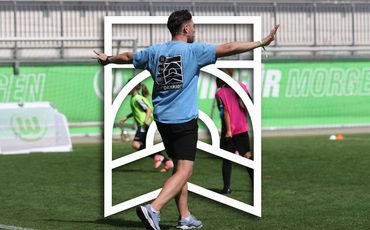
Engaging Parents Positively in Youth Sport
with Professor Chris Harwood
In a compelling episode of the ICK Podcast, Professor Chris Harwood of Loughborough University joins host Barnaby Sargent-Megicks to explore one of the most influential—and often overlooked—factors in youth sport: parents. The conversation dives into how coaches can engage parents positively to create a more supportive, enjoyable, and developmentally rich environment for young athletes.
Parents as Partners, Not Problems
Professor Harwood begins by challenging the common narrative that parents are a “problem” in youth sport. Instead, he reframes them as essential partners in the coaching process. When engaged effectively, parents can reinforce key messages, support emotional well-being, and help children navigate the ups and downs of sport.
The key, Harwood explains, is proactive communication. Coaches should not wait for issues to arise before speaking with parents. Instead, they should set clear expectations, share their coaching philosophy, and invite parents into the process from the start.
The 3 Cs of Positive Engagement
Professor Harwood introduces a simple but powerful framework for working with parents: the 3 Cs—Connection, Communication, and Collaboration.
Connection: Build relationships with parents based on mutual respect and shared goals. Take time to learn about their child and their family context.
Communication: Be open, honest, and consistent. Share not just logistics, but also your values, goals, and approach to development.
Collaboration: Involve parents in meaningful ways—whether it’s supporting team culture, reinforcing learning at home, or helping with logistics.
This approach helps create a unified support system around the child, where coaches and parents are working together rather than at odds.
Managing Expectations and Emotions
Another key theme in the episode is managing expectations—both the coach’s and the parents’. Harwood encourages coaches to be clear about playing time policies, development goals, and the role of competition. When expectations are aligned, misunderstandings and conflicts are far less likely.
He also highlights the emotional investment parents have in their children’s sport. Coaches should acknowledge this and provide guidance on how parents can support their child’s experience in a healthy, constructive way.
Final Thoughts
Professor Chris Harwood’s insights remind us that parents are not just spectators—they are stakeholders in the youth sport experience. By engaging them positively through connection, communication, and collaboration, coaches can build stronger teams, healthier environments, and more resilient young athletes.
Want to discover more of his work? You can follow Chris on Twitter
Contributor:

Professor Chris Harwood
Chris is a Professor at Nottingham Trent University. His research interests and expertise lie in the psychosocial aspects of youth sport and athlete development, with a particular focus on the socio-environmental influence of parents and coaches. He has particularly focused his applied research in the field of achievement motivation, sport parenting and, through his work on the 5Cs approach (www.the5Cs.co.uk), to athlete development. As a scientist-practitioner, he is also noted for his work in professional practice and the study of factors related to the training and development of applied sport psychologists.
Comments
Related Pages


